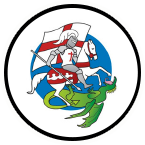Oracy at St George's
Oracy is a the heart of our curriculum and how children learn at St George's.
Evidence shows us that when children develop their oracy skills they become more engaged with learning and develop the tools, knowledge and confidence to flourish personally and academically.
What is Oracy?
Oracy is the ability to articulate ideas, develop understanding and engage with others through spoken language.
In school, oracy is a powerful tool for learning; by teaching students to become more effective speakers and listeners we empower them to better understand themselves, each other and the world around them. It is also a route to social mobility, empowering all students, not just some, to find their voice to succeed in school and life" Voice 21
 Children are explicitly taught the four strands of Oracy. They are:
Children are explicitly taught the four strands of Oracy. They are:

These are then planned across all subjects with progression as children develop confidence and understanding at the appropriate age. We have added examples of progression grids at the bottom of this page.

How do we teach and develop oracy understanding and skills?
At St George's we have developed clear programs of agreed talking tips and talk tactics to help children practise and master their oracy skills. They will use these in all lessons from P.E to mathematics. These make oracy a norm and develop an emotionally safe culture for all children to participate.

This culture and value of oracy is then harnessed through careful pedagogy including:
- Different groupings and structures for oracy.
- Talk tactics so children can contribute, listen and respond using known tactics, techniques and 'taught' processes.

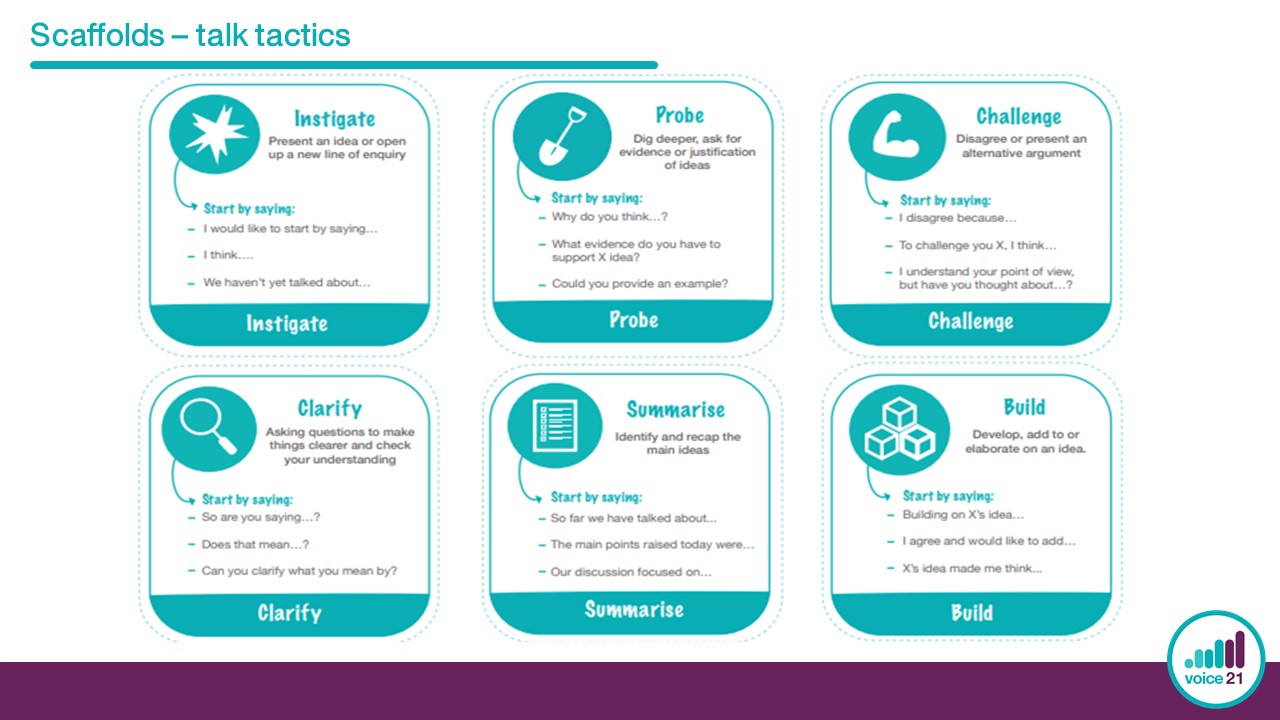
Using different grouping and talk tactics children are taught to expand and master their vocabulary and sentence structure. Specific vocabulary is defined and taught so children can think deeply about the meaning and contexts for using that vocabulary.
Children think metacognitively about that vocabulary using the range of techniques illustrated below.

Concept cartoons below illustrate and example how we develop the use of specific vocabulary.
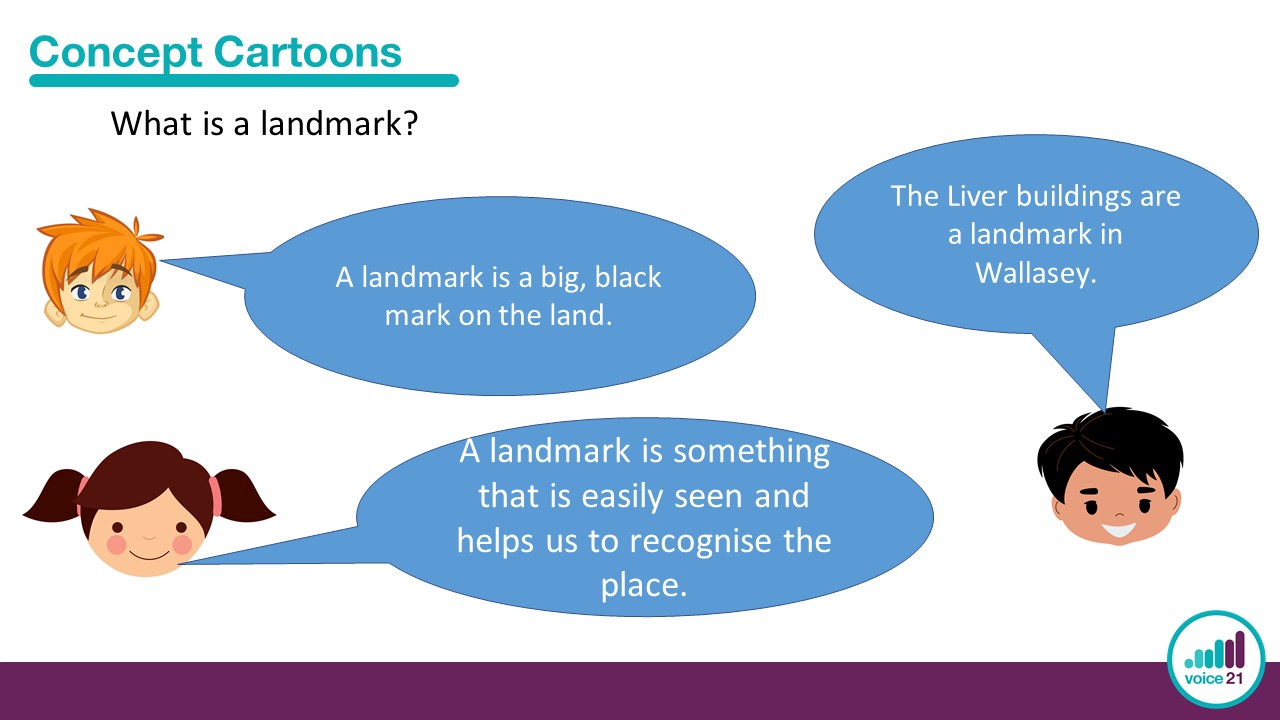
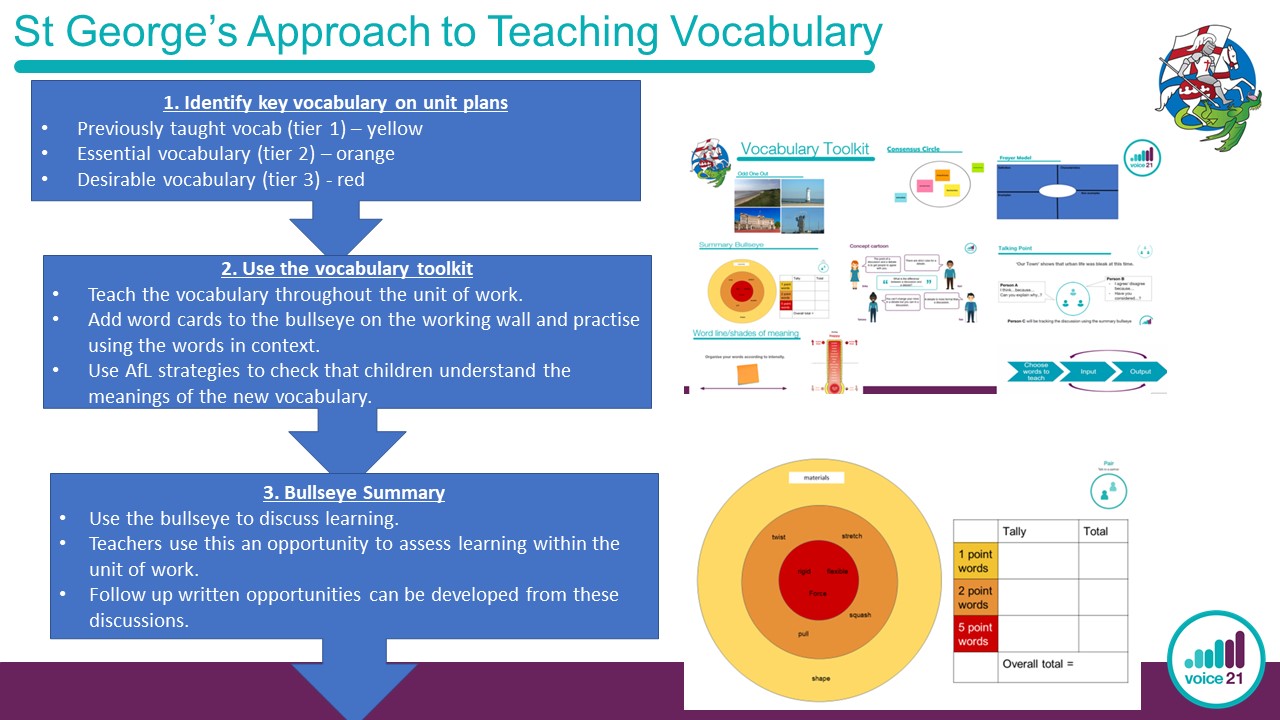
Children are then taught age appropriate sentence structures and starters (sentence stems) to apply their vocabulary and think deeply about their language choices, explanations and questions.
We encourage them to try different structures and practise their sentences again if they feel they can be improved.
Nobody should expect their first attempt to be their best attempt.
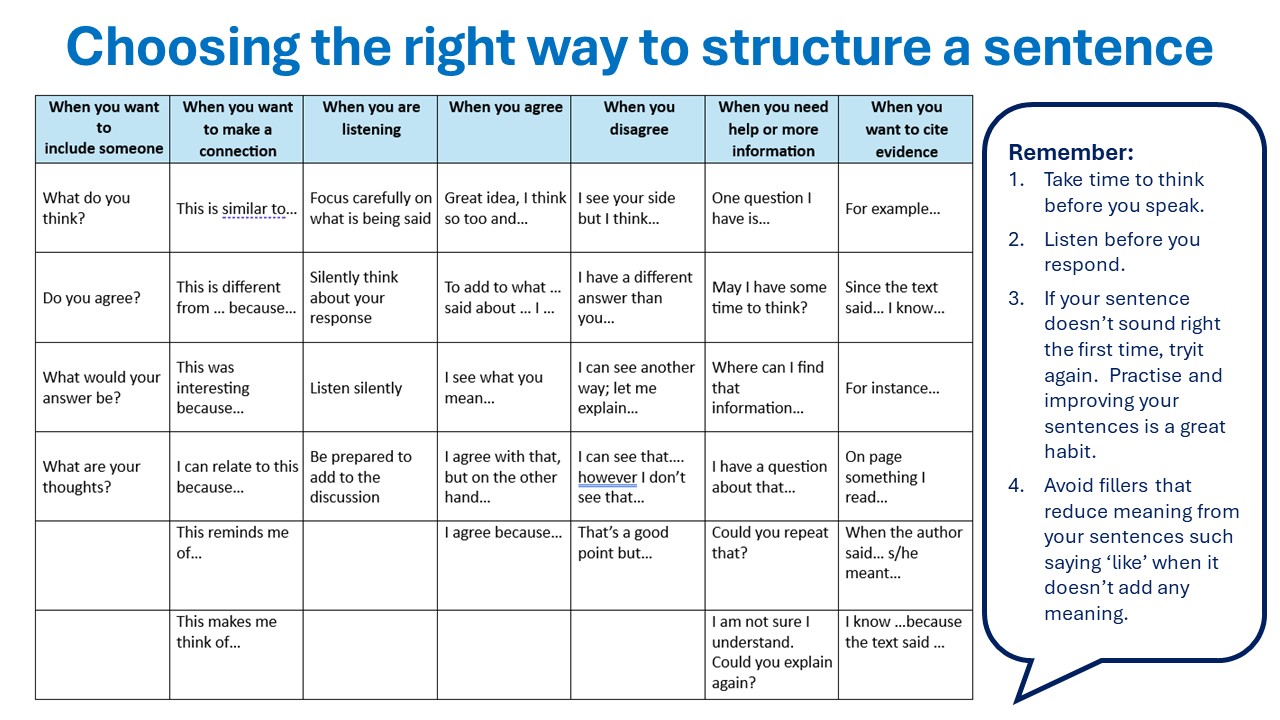
Developing Metacognitive Thinking
Thinking and organising language develops a depth of thinking and understanding.
At St George's metacognition principles of metacognition underpins our approach to deep thinking. At St George’s we define meta-cognition as:
‘Metacognitive regulation involves pupils planning, monitoring and evaluating their learning, to support independent learning behaviours.’
We will talk to our children about this as:
‘How I make good decisions to manage my learning’. We would expect children to explicitly know what meta-cognition is.

Voice 21 Centre of Excellence

We are really proud to be accredited as a Voice 21 Centre of Excellence. That means that our practice has been assessed as being excellent and having a significant impact on children's communication and learning.
To become a centre of excellence we have to demonstrate fidelity and impact using the Voice 21 oracy benchmarks.

Being a centre of excellence means a lot to our school. It celebrates our children and staff but also allows us to collaborate with other schools and key staff at Voice 21. Our award in April 2024 was celebrated by our whole school community.
Mr Cassidy commented that;
Our Voice 21 accreditation and report reflected on our amazing children, their ability to advocate using their voices and how our staff team have embraced the training and opportunities that working as part of the Voice 21 community has provided.
St George's Voice 21 accreditation report stated;
St George’s approach to oracy is driven by their belief that the students who attend their school deserve the best education.
"Oracy is woven through every aspect of life at St George’s - stemming from a vision that makes clear that oracy is a vehicle to access curriculum whilst also being fundamental in its own right to help students to thrive socially, pastorally, emotionally and academically.
It is clear from the brilliant application and impact presentation that oracy is a priority for all stakeholders, and time has been taken to ensure that everyone is included on every step of the school’s oracy journey."
-
KS1 St George s progression grids
download_for_offline
download_for_offlineKS1 St George s progression grids
- LKS2 St George s progression grids download_for_offline
↑download_for_offlineLKS2 St George s progression grids
- Oracy curriculum statement download_for_offline
download_for_offlineOracy curriculum statement
- St George s progression grids download_for_offline
download_for_offlineSt George s progression grids
- UKS2 St George s progression grids download_for_offline
download_for_offlineUKS2 St George s progression grids
- LKS2 St George s progression grids download_for_offline

